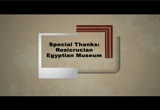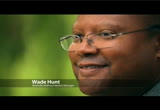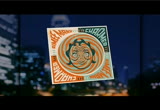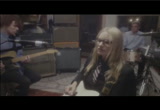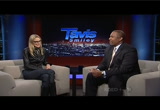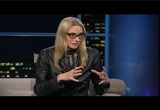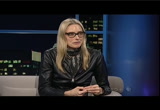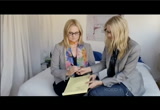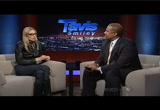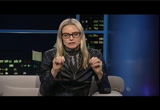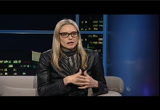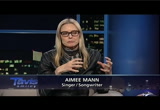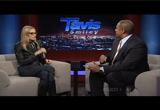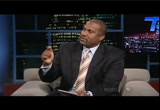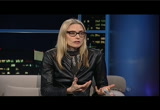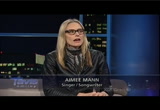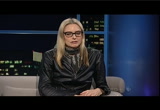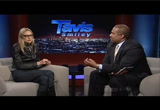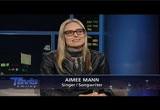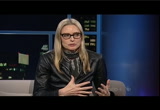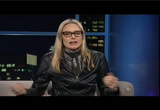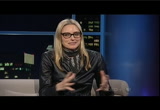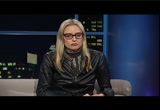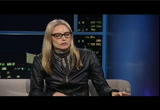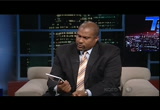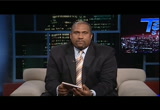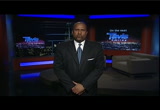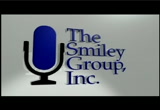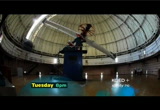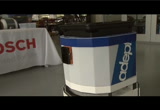tv Tavis Smiley PBS January 3, 2013 12:00am-12:30am PST
12:00 am
tavis: good evening. from los angeles, i am tavis smiley. today, a conversation with aimee mann. she has been at the forefront of the music scene. she has just wrapped a nationwide tour in support of her latest project. it is called "charmer." glad you could join us. >> there is a saying that dr. king had that said there is always the right time to do the right thing. i try to live my life every day by doing the right thing. we know that we are only halfway to completely eliminating hunger and we have work to do. walmart committed $2 billion to
12:01 am
fighting hunger in the u.s. as we work together, we can stamp hunger out. >> and by contributions to your pbs station from viewers like you. thank you. tavis: pleased to welcome aimee mann back to this program. the grammy-winning and oscar- nominated singer/songwriter has just wrapped up a nationwide tour in support of her most recent project. it's called "charmer." following her success with 'til tuesday in the 1980's, she is about to enter her 20th year as a solo artist. wow. [laughter] >> you startled me. tavis: yeah. [laughter] startled me when i read it. [applause] -- [laughter] a lot to get to tonight, but
12:02 am
first here is some of the very funny video for her song "labrador" featuring someone you may recognize from a show called "mad men." take a look. >> i really did not want to do this video. i thought it was a stupid idea, and the director was incompetent. i thought i was being pranked. >> she had so many ideas. we were talking back and forth. it was so collaborative. >> the director basically tricked me into signing a contract that gave him total control of everything. i was on the phone and he put something in front of me to sign. he said it was a birthday card for his nephew. >> it is my pleasure to present to you the new video for "labrador." take it away. >> ♪ when we first met i was glad to be your pet like a lab i once had that we
12:03 am
called maisey but fetching sticks was the best i had for tricks you got bored you got mad then you got crazy but i came back for more and you laughed in my face and you rubbed it in cause i'm a labrador and i run when the gun drops the dove again ♪ tavis: so this intersection, aimee, of your music and comedy started when? >> probably 10 years ago. there's a club in los angeles called largo and me and my husband, michael penn, used to play there a lot. monday nights they had comedy
12:04 am
night, so we started going to comedy nights and became friends with all these comedians and then just started incorporating comedians into our thing. michael and i actually did a tour where we had comedians as a part of it. the idea started because there was one night where we played a show and we were talking about the show later and saying, "yeah, i feel like i played a good show. just like every time i have to say something between songs, i feel so tongue-tied." then i thought, well, let's get, you know, like in baseball where they have the pinch hitter, let's get an expert to come in who's good at bantering and then he can come in and do my banter and then leave and then i'll play the song. tavis: all right. >> so we started doing that and it was just such a dumb idea,
12:05 am
but it really made us laugh. so we actually did a whole tour where we would have comedians, you know, doing our banter for us. tavis: and how did the fan base respond or react to that? >> i think they liked it. it's interesting. i think it has an interesting effect on people when they laugh, you know, because michael and i both are more sort of serious or depressing or whatever. but when people laugh and then their attention is almost more focused on the music after laughing, and i'm not really sure why that is, but it was interesting. it was actually a really nice experience. tavis: yeah. what do you have against charmers? >> i mean, i love charming people. i'm really fascinated by them because i think it's a skill that i don't have, like i don't really know. i feel very awkward at making conversation with people and i envy people who can just stroll into a room and have anecdotes and tell jokes and get the
12:06 am
punch line in the right place, which i can never do, and make people feel at ease and make people like them. i mean, that's a nice skill to have. but i wrote this song, "charmer," about a friend of mine who was charming in a nice way, but as i started to think about the idea of charm and the charming people i've known, i realized that sometimes there's a darker side to it and maybe that side is people who use charm to manipulate you. and i think sometimes it's also a cover-up for people who are really dependent on the approval of others. you know, there's a kind of sadness underneath. so, you know, i started to think about this and it all became like very fascinating to me. tavis: i don't want to overstep here.
12:07 am
would you call this a concept project? i only ask that because there's more than just this one song, "charm," that speaks to this issue. is this a concept project? >> i don't think so, no. i sort of have themes that i think about and, once i kind of become interested in them, if i'm writing a song, it'll creep in in little ways. but, you know, it's not like a treatise on charm and narcissism or something. i mean, i'm interested in those things, so it's pervasive. tavis: yeah. i'm always curious about this with artists, the creative process and how it happens for each and every one of you. how would you best describe the way the creative process from project to project happens for you? >> well, from project to project, i don't know. i mean, there's always you find yourself listening to certain kinds of music or something gets your attention a lot of times, you know, from record to record, i find myself thinking, okay, now i feel like going in a
12:08 am
direction that's almost opposite the direction i was just in. you know, writing songs, it's usually a pretty similar process every time i write a song where i start with music, you know, just kind of fooling around with chords and melody and that suggests -- you know, i feel like the music has within in its own sort of emotional tone and, from the tone and mood, i just think like what story or character or vibe does this suggest to me, and then i kind of extrapolate from there. you know, if i feel like it's kind of sad, but like sort of angry, then i'll go like, okay, what's a story that tells that story? tavis: is that emotional tone --
12:09 am
i like that phrase, emotional tone -- is that emotional tone connected or disconnected from what's happening in aimee mann's life at the time of the writing? >> it's usually pretty connected. i try to connect myself personally to every story. you know, sometimes it's i'll write a song, i mean, often inspired by somebody i know or a situation that is happening around me. but i try to think like, well, i can only write about from my own point of view obviously anyway. so it's either my reaction to that situation or a lot of times i like to put myself in their place and write from their point of view just to see if i can either empathize or tell the story. it's more interesting to me to tell a story in the first person than the third person, which just seems too distant. tavis: have you always been open
12:10 am
to that first person voice or is that something over your songwriting life these 20 years that you had to get more comfortable with? alwaysink i've probably done a lot of -- yeah, i've probably written a lot of songs in first person. sometimes i write in second person because that feels like it's personal, but a little more universal or a way to ruminate about your own behavior with a little bit of distance. tavis: this project, to my ear at least -- i could be wrong, you tell me -- to my ear, given your previous work, this is a little bit, production-wise, a little bit different than what your fans may be used to you. yes or no? >> well, i was trying for that. i was listening to and inspired by a lot of pop music from the 1970's and also just thinking about my love for pop music and what that means to me. not pop music of today because, you know, that's really heavy on production in a different way, but sort of like early 1970's or pre disco, and then i started to think like, well, what about
12:11 am
all that great stuff in the early 1980's like blondie and the cars. so i was just like focusing on what i thought were kind of pure pop productions and taking elements from them. a lot of that was, you know, when i was a kid and first hearing synthesizers used in pop music and how like, whoa, that sounds so crazy and different, and recapturing some of those sounds. tavis: when you say pure pop, by that you mean what? >> i think, you know, radio hits from the 1970's, yeah. tavis: you have been honest about what you were hearing and what you wanted to bring back to this project. it raises me this question whether or not you think musical taste is cyclical or, once an era is gone, is that musical era gone? >> i think it's like, you know, waves on the beach.
12:12 am
you know, it's cyclical. the waves will keep coming back, but a lot of sand gets eroded as it happens. so i do think that they're cycles, but there are going to be things that do eventually just die off forever, which is too bad. but then again, you know, you can't spend that much time like trying to vainly keep something alive when, you know, maybe it's time to let it go. tavis: i actually have a couple of questions, one, because of the way you produced this particular record and what you drew upon from the 1970's as you said earlier from that pure pop of the 1970's. the second reason why i raise it, though, is it might help me understand better how an artist like you goes about navigating their career forward, knowing that what may work today doesn't work when you put another record out two or three years from now because tastes change so quickly in our society. >> they do and they don't.
12:13 am
also, my audience probably -- i mean, it's not like i'm playing to, you know, 20-year-olds. i think my audience is fairly consistent and kind of moves along with me. i don't know. you can really just only go with what you're interested in and try to make an effort to listen to new music. but sometimes being influenced, i don't know, sometimes staying fresh and excited means going back and listening to older stuff that you've missed the first time around too. you know, a lot of it is random. i'll tell you, really you just can't worry about if people are gonna like it or not because you never know. you literally never know. i mean, i feel that sometimes there's pressure on people to -- you know, you got to change and stay current and get on with this hipster trend.
12:14 am
but honestly, like who wants that? i mean, nobody wants someone who's jumping on another trend. i think people respond to anyone who's being authentic regardless of what, you know, the production influences or the songwriting style influences or whatever it is, you know, whatever that stuff is. tavis: you've opened up a nice door that i want to go into now. how much of you making the decision back in the day to go the independent route, how much has that aided and abetted in being able to actualize the belief that you just expressed? >> it's huge, it's huge, because you don't have to expend any energy on trying to hear with somebody else's ears, you know. i'll tell you, that is the worst feeling because it's corrosive
12:15 am
and pervasive and insidious to be writing a song and then, halfway through, go -- you know, maybe you're excited about the song, maybe you're really connected to the song, maybe it's meaningful to you and then, halfway through, go, well, they're never gonna like it. tavis: yeah. >> it's deflating and it's really hard to not be affected by it. i mean, 'cause i'd like to sort of feel like i'm one of those people that goes, oh, i don't care what other people think, but i think the act of songwriting and making records and being a musician is so much about being open and porous and empathetic and not having these boundaries. you know, then you can't control like some of the negative stuff that comes in. i mean, i castigate myself for it. i really feel like i should not care or should not have been affected by that, but i admit that i was and i have been. you know, in other ways, i have been, but it's a terrible feeling to go, yeah, i thought this was pretty good, but they're probably not gonna like
12:16 am
it or it's not gonna be good in the right way. maybe good is just not interesting, you know. tavis: i hear that wrestling and yet i'm trying to figure out for you and even for myself because every one of us, you know, is an artist in our right at something and you do have to figure out where the line is. on the one hand, you can't totally not care. you can't be devoid of that concern and yet there is a line at which you have to say, okay, i'm not going past this because i've got to do what i think is authentic for me. the question is, how do you find out where that line is? >> it's hard. you know, what i usually try to do is just tell myself, look, you're just writing the song for you. you don't have to play it for anybody when it's done. maybe this is a song you don't
12:17 am
play for anybody. so i think that helps to keep that sort of negative voice at bay or that speculation at bay. but it's not always that easy. tavis: earlier in this conversation, you referenced your audience. it occurs to me, i think, in all the years i've been doing this, i've heard artists reference their audience. i've never, to my mind at least, ever asked this question, so you're the first person i get to ask this of, which is how you know what your audience is. i ask that because the industry is so not like it used to be back in the day and the way we distribute music and dispense music is so different than it was back in the day. how do you know who or what your audience is these days? >> i don't. i mean, honestly like i don't. i think i'm just guessing. even playing a show, you know, when i play a show, i can see the first couple of rows, but also just from venue to venue or town to town, it's different. i mean, it really is different.
12:18 am
i kind of have no idea. [laughter] tavis: took a while to get there. [laughter] now we've finally arrived. you have no clue. >> yeah. i have no concrete -- based on a lot of murky assumptions. [laughter] tavis: but, i guess, on the one hand, though, that's not the worst thing. i mean, i can see the good in that. i can see the good in not knowing who your audience is 'cause, if you don't know who the audience is, you don't have to play to a certain level or respond to a certain level of expectation. >> that's right. tavis: does that make sense? >> absolutely, yeah. and then the people i do meet, you know, say, people who are waiting for me after the show, maybe that's not the best cross-section 'cause maybe like
12:19 am
the people who really want to meet you, i don't know. it's hard to say, it's hard to say. tavis: at this point, now that you've been doing this for 20 years, as we noted earlier, what do you personally still get out of all the gigging? >> well, my relationship to performing is totally different than it was. when i was in 'til tuesday, especially performing was really hard. i didn't understand it. i felt super uncomfortable. i felt there was a lot of pressure on me. this is true actually. there was a lot of pressure on me to become a bigger performer and the first tour that 'til tuesday did just by a series of accidents was opening for hall & oates and they were playing arenas. so i found myself playing -- i still can't believe this thing that happened -- in front of 10,000 people going i have no idea how to rise to this occasion. honestly, it's like it's not appropriate for me. you know, not every performer is meant to play in front of 10,000 people. i like a smaller audience and i
12:20 am
like a show where, you know, there's points during the show where i can just play my acoustic guitar and sing a couple of songs by myself. the idea of, you know, like people would go like, "make your gestures really big." i don't know. what is that? [laughter] that just seems crazy. i don't know what that is. like do some dance moves. look at me. i'm not dancing. so i always felt like really an imposter trying to be in this sort of pop group. you know, like when you're 24 and this is a band that i feel like doing now for maybe a couple of years and then suddenly i'm in this situation going i don't know how to drive this car. tavis: you know, the irony of that for me, aimee -- first of all, quick aside -- i would have loved to have hung out with hall & oates for like -- i love those guys. [laughter] oh, god. >> i watched almost every show.
12:21 am
their shows were so great. i think their songs are so terrific. tavis: daryl is like the most soulful white man that ever lived. >> he's such a good singer. tavis: i mean, i love both of them, but daryl's voice is unbelievable. but i digress on that one. what's fascinating about this story for me about your deciding and figuring out that the big massive arenas, hanging out with hall & oates, that was not meant for you, that was not your thing, you couldn't do the big gestures. so you scaled down to where you are comfortable, but then you become a solo artist. so you're still out there like it's on you. >> but i always have a band. you know, i kind of realized as time went on that you can choose your band members who, you know, are not only great musicians, but good friends. that's sort of where i've come to. there's the guy who produced this record, paul bryan, the bass player in my band and kind of the musical director and we've worked together probably over 10 years.
12:22 am
we've just become really, really good friends and there's something about working with him that has really radically changed my relationship to performing because he has such a relationship -- almost like a spiritual relationship -- with music and, if it's not right, if it's not happening, he sort of can't do it. so i've really come to trust his opinions and feel this kind of -- you know, when i go out onstage -- real kinship. so if i've started to feel anxious or worried or, you know, kind of make a mistake and you go like, oh, i can't believe i made that mistake, to look over at somebody who's a friend and who's solid and kind of supporting you in this musical way has really made a huge difference. and it's really allowed me to feel much more comfortable performing and i really enjoy it now. but a lot of it is about creating a shared, you know,
12:23 am
where the whole is greater than the sum of its parts, you know, to feel like i'm part of a band and part of a group of people who are all willing to kind of -- you know, i'm the front man, but there is an aspect of we're all setting aside our egos about shining to create a shared experience where we're all pulling together. that's really a magical thing. tavis: it's a good place to get to, yeah. >> yeah. tavis: i got 30 seconds to go. so since i mentioned earlier in this conversation and you agreed that this project is a little bit different than what your fans may be used to, now that you've wrapped this national tour in support of the project, how did it go? how'd they receive it? >> it was great, it was great. i mean, i had a really great
12:24 am
time. the audiences were fantastic. i have a full band that i'm taking out 'cause the last few years i've been doing a more semi-acoustic thing. i mean, i really had a blast. i feel like people really liked it. you know, we've had some really amazing shows. tavis: so that's cool. you don't care what they think when you're writing it, but when they do like it, it feels good. [laughter] >> yeah. but i'll tell you, it's mostly because when you connect with people, that's like the joy and the magic. tavis: couldn't agree more. the new project from aimee mann is called "charmer." aimee, good to have you on the program. it's good to see you again. >> it's good to see you. thank you so much. tavis: my pleasure. that's our show for tonight. you can download our app in the itunes app store. see you back here next time on pbs. until then, goodnight from l.a., thanks for watching and, as always, keep the faith. ♪ ♪ >> ♪ go ahead and say your done
12:25 am
with this it's cool baby, you can go whatever way you choose because you've come to realize this good enough you'll be free ♪u don't know it all >> for more information on today's show, visit tavis smiley at pbs.org. tavis: join me next time for a conversation with oscar-winner matt damon, on his latest film, "promised land."
12:26 am
132 Views
Uploaded by TV Archive on

 Live Music Archive
Live Music Archive Librivox Free Audio
Librivox Free Audio Metropolitan Museum
Metropolitan Museum Cleveland Museum of Art
Cleveland Museum of Art Internet Arcade
Internet Arcade Console Living Room
Console Living Room Books to Borrow
Books to Borrow Open Library
Open Library TV News
TV News Understanding 9/11
Understanding 9/11